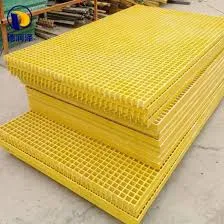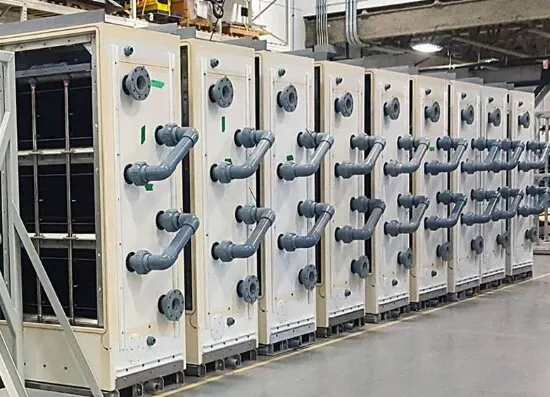
-
 Afrikaans
Afrikaans -
 Albanian
Albanian -
 Amharic
Amharic -
 Arabic
Arabic -
 Armenian
Armenian -
 Azerbaijani
Azerbaijani -
 Basque
Basque -
 Belarusian
Belarusian -
 Bengali
Bengali -
 Bosnian
Bosnian -
 Bulgarian
Bulgarian -
 Catalan
Catalan -
 Cebuano
Cebuano -
 China
China -
 China (Taiwan)
China (Taiwan) -
 Corsican
Corsican -
 Croatian
Croatian -
 Czech
Czech -
 Danish
Danish -
 Dutch
Dutch -
 English
English -
 Esperanto
Esperanto -
 Estonian
Estonian -
 Finnish
Finnish -
 French
French -
 Frisian
Frisian -
 Galician
Galician -
 Georgian
Georgian -
 German
German -
 Greek
Greek -
 Gujarati
Gujarati -
 Haitian Creole
Haitian Creole -
 hausa
hausa -
 hawaiian
hawaiian -
 Hebrew
Hebrew -
 Hindi
Hindi -
 Miao
Miao -
 Hungarian
Hungarian -
 Icelandic
Icelandic -
 igbo
igbo -
 Indonesian
Indonesian -
 irish
irish -
 Italian
Italian -
 Japanese
Japanese -
 Javanese
Javanese -
 Kannada
Kannada -
 kazakh
kazakh -
 Khmer
Khmer -
 Rwandese
Rwandese -
 Korean
Korean -
 Kurdish
Kurdish -
 Kyrgyz
Kyrgyz -
 Lao
Lao -
 Latin
Latin -
 Latvian
Latvian -
 Lithuanian
Lithuanian -
 Luxembourgish
Luxembourgish -
 Macedonian
Macedonian -
 Malgashi
Malgashi -
 Malay
Malay -
 Malayalam
Malayalam -
 Maltese
Maltese -
 Maori
Maori -
 Marathi
Marathi -
 Mongolian
Mongolian -
 Myanmar
Myanmar -
 Nepali
Nepali -
 Norwegian
Norwegian -
 Norwegian
Norwegian -
 Occitan
Occitan -
 Pashto
Pashto -
 Persian
Persian -
 Polish
Polish -
 Portuguese
Portuguese -
 Punjabi
Punjabi -
 Romanian
Romanian -
 Russian
Russian -
 Samoan
Samoan -
 Scottish Gaelic
Scottish Gaelic -
 Serbian
Serbian -
 Sesotho
Sesotho -
 Shona
Shona -
 Sindhi
Sindhi -
 Sinhala
Sinhala -
 Slovak
Slovak -
 Slovenian
Slovenian -
 Somali
Somali -
 Spanish
Spanish -
 Sundanese
Sundanese -
 Swahili
Swahili -
 Swedish
Swedish -
 Tagalog
Tagalog -
 Tajik
Tajik -
 Tamil
Tamil -
 Tatar
Tatar -
 Telugu
Telugu -
 Thai
Thai -
 Turkish
Turkish -
 Turkmen
Turkmen -
 Ukrainian
Ukrainian -
 Urdu
Urdu -
 Uighur
Uighur -
 Uzbek
Uzbek -
 Vietnamese
Vietnamese -
 Welsh
Welsh -
 Bantu
Bantu -
 Yiddish
Yiddish -
 Yoruba
Yoruba -
 Zulu
Zulu
Feb . 14, 2025 05:08
Back to list
frp products for steel smelting plant
FRP products have become a cornerstone in the construction and operation of steel smelting plants. Known for their remarkable properties, these materials efficiently meet the demanding conditions of steel production environments. The integration of fiberglass reinforced plastic (FRP) products within these facilities ensures enhanced performance, longevity, and reliability, all critical to sustaining productivity at high levels.
Authoritativeness in manufacturing FRP products is borne out of stringent quality controls and compliance with industrial standards. Leading FRP manufacturers implement rigorous testing protocols, ensuring that the products are up to par with the safety and performance standards required in steel smelting operations. Certifications from recognized bodies further endorse the reliability of FRP materials, establishing trust with steel plant operators who depend on these products for critical infrastructural needs. Relationships with FRP product suppliers hinge on the trustworthiness and reputation of the manufacturers. For steel plants, partnering with suppliers that have a proven track record in delivering high-quality FRP solutions ensures a level of predictability and assurance in operational outcomes. This trust is fostered through transparent business practices, including providing detailed technical support and maintaining open channels of communication to address any potential issues promptly. In occasions where customization is necessary, the versatility of FRP products stands out. Steel smelting plants often require bespoke solutions to fit unique process demands. The adaptability of FRP allows for custom fittings and structures, crafted to meet specific plant needs without extensive lead times or excessive costs. As a result, steel plant operators can optimize their environment for enhanced flow efficiency and safety. In summation, FRP products for steel smelting plants offer unmatched advantages in durability, safety, and efficiency. Their resistance to industrial chemicals, ability to withstand high temperatures, and ease of installation make them indispensable in the quest to optimize steel production processes. As industries continue to advance towards more sustainable and efficient practices, the role of FRP products remains pivotal, proving their worth as an essential component in modern-day steel smelting plant infrastructure. The growing reliance on these expertly crafted products underscores their significance and reaffirms their position as a keystone in industrial materials engineering.


Authoritativeness in manufacturing FRP products is borne out of stringent quality controls and compliance with industrial standards. Leading FRP manufacturers implement rigorous testing protocols, ensuring that the products are up to par with the safety and performance standards required in steel smelting operations. Certifications from recognized bodies further endorse the reliability of FRP materials, establishing trust with steel plant operators who depend on these products for critical infrastructural needs. Relationships with FRP product suppliers hinge on the trustworthiness and reputation of the manufacturers. For steel plants, partnering with suppliers that have a proven track record in delivering high-quality FRP solutions ensures a level of predictability and assurance in operational outcomes. This trust is fostered through transparent business practices, including providing detailed technical support and maintaining open channels of communication to address any potential issues promptly. In occasions where customization is necessary, the versatility of FRP products stands out. Steel smelting plants often require bespoke solutions to fit unique process demands. The adaptability of FRP allows for custom fittings and structures, crafted to meet specific plant needs without extensive lead times or excessive costs. As a result, steel plant operators can optimize their environment for enhanced flow efficiency and safety. In summation, FRP products for steel smelting plants offer unmatched advantages in durability, safety, and efficiency. Their resistance to industrial chemicals, ability to withstand high temperatures, and ease of installation make them indispensable in the quest to optimize steel production processes. As industries continue to advance towards more sustainable and efficient practices, the role of FRP products remains pivotal, proving their worth as an essential component in modern-day steel smelting plant infrastructure. The growing reliance on these expertly crafted products underscores their significance and reaffirms their position as a keystone in industrial materials engineering.
Next:
Related Products









